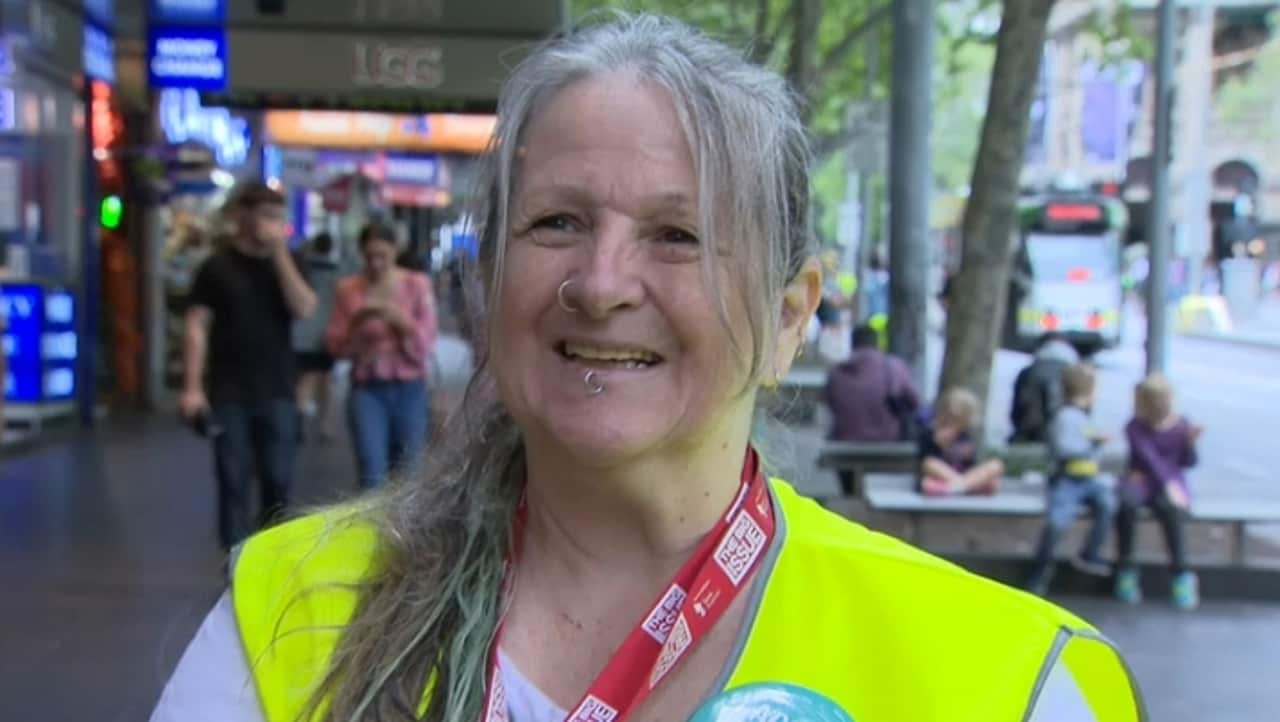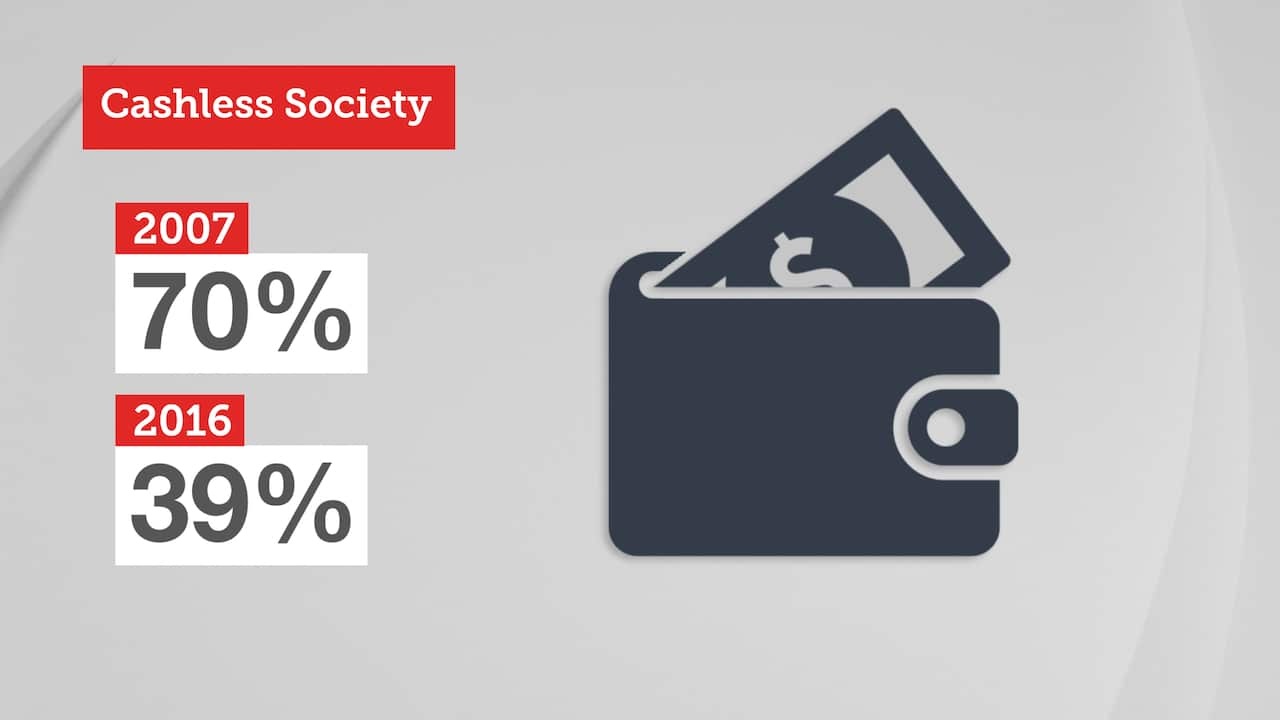Over recent years, there has been a significant drop in the number of people carrying, and paying in cash.
As Australia moves towards becoming a cashless society, charities are learning how to embrace the change.
Independent street magazine The Big Issue, which has spent 20 years trading in cash, has become the newest charity joining the digital revolution.
The charity's vendors across the country rolled out tap-and-go technology on Friday in a bid to stay afloat in Australia's increasingly cashless society.
A Melbourne vendor identifying herself only as Cheryl says she has been selling the charity magazine for over 10 years.
But she says her sales had dropped significantly because so many people no longer carried cash.
"It's dropped dramatically, because, when I first started, I could sell, like, 25 magazines in a day. Now, sometimes, you're lucky to sell maybe 10, 15, because a lot of people just go, 'Oh, look, I just don't have cash," she said.
Now, Cheryl will be wearing a digital gadget around her neck where customers can either tap-and-go or use the mobile-phone app 'Beem it' to pay.
She says having the technology will change her business for the future.
"I'm hoping all of us make heaps of money so that, you know, we not only have a great Christmas but our next years just keep on improving," she said.

Volunteer Cheryl as worked for charity street magazine The Big Issue for 10 years. Source: SBS News
Moving into the digital economy has become integral to many cash workers because of the significant drop in people using cash.
In 2007, 70 per cent of Australians paid in cash, but, by 2016, it was down under 40 per cent.
ATM withdrawals have also dropped to a 15-year low.
The Salvation Army was one of the first to lead the way in implementing the new technology.
Community fundraising manager Andrew Hill says the tap-and-go gadgets helped the Salvation Army raise over $7 million in its latest Red Shield Appeal.
"People come up to our collection signs, and they do that what we call 'the Aussie haka,' where they tap their pockets to indicate they've got no coins on them or they've got no loose change on them. And so we now are able to say, 'That's fine, because we have these tap devices," said Mr Hill.

Source: SBS News
But Mr Hill says introducing the technology was not without its challenges.
"Look, I think it was probably more challenging for our volunteers and our people on the front line, getting used to it. We had operated pretty much the same way for probably 50 years. So to communicate to them was probably the most challenging part," he said.
Many donors had hesitations as well.
"The next shift was communicating to the Australian public that this was a legitimate way to give to the Salvation Army, who they traditionally probably were used to giving loose change to," added Mr Hill.
A study by the Australian Taxation Office found four in five Australians now prefer using their cards over face-to-face transactions, so it is not just charities making the switch.
While some analysts believe Australia will be cashless by 2020, Swinburne University's Professor Steve Worthington says people still trust cash inherently.
But he agrees Australia will continue to rely more and more on cards.
"That's a lingering fear, I think for the older generation. But, I think, as we move on, we're using cards more and more in all kinds of situations. Even on public transportation, there's Myki cards in Melbourne. So, it's more and more useful to have these cards, and more and more acceptable, and we've come to rely on them. And they are secure," said Professor Worthington.
Share


